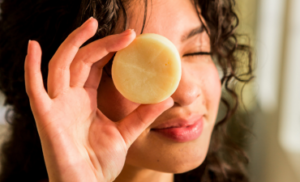Natural bar soap has been gaining popularity as a sustainable and chemical-free alternative to traditional liquid shampoos. But is it truly beneficial for your hair? In this article, we will delve into the fundamentals of using natural bar soap for hair care, examining its benefits and potential drawbacks to help you make an informed decision.
What is Natural Bar Soap?
Natural bar soap is made from natural ingredients, typically free from synthetic chemicals, artificial fragrances, and preservatives. These soaps are often crafted using traditional methods, which include saponification—a process that combines fats or oils with a strong alkaline solution to create soap.

Common Ingredients in Natural Bar Soap
- Oils and Butters: Natural bar soaps often contain nourishing oils such as coconut oil, olive oil, and shea butter. These ingredients are known for their moisturizing properties and ability to provide a rich lather.
- Essential Oils: Essential oils like lavender, tea tree, and peppermint are frequently used for their aromatic qualities and potential benefits for the scalp and hair.
- Botanical Extracts: Ingredients like aloe vera, chamomile, and calendula are added for their soothing and healing properties.
- Natural Colorants: Herbs, clays, and plant-based materials are used to color natural bar soaps without synthetic dyes.
Benefits of Using Natural Bar Soap for Hair
- Chemical-Free: One of the primary advantages of natural bar soap is the absence of harsh chemicals such as sulfates, parabens, and silicones, which can strip hair of its natural oils and cause irritation.
- Eco-Friendly: Natural bar soaps are often packaged in minimal, biodegradable packaging, making them an environmentally friendly choice.
- Cost-Effective: Bar soaps typically last longer than liquid shampoos, providing a cost-effective solution for hair care.
- Scalp Health: The natural ingredients in bar soaps can help maintain a healthy scalp by reducing dryness and flakiness.
Potential Drawbacks of Natural Bar Soap for Hair
- Adjustment Period: Switching from liquid shampoo to bar soap may require an adjustment period. Hair can feel waxy or greasy initially as it adapts to the lack of synthetic ingredients.
- Hard Water Issues: Hard water can make it difficult for natural bar soap to lather and rinse out completely, potentially leaving a residue on the hair.
- pH Balance: Natural bar soaps may not have the same pH as liquid shampoos, which can affect the hair’s cuticle and overall health.
How to Use Natural Bar Soap for Hair
- Wet Hair Thoroughly: Ensure your hair is fully saturated with water before applying the soap.
- Lather the Soap: Rub the bar between your hands to create a lather or directly onto your scalp and hair.
- Massage and Rinse: Massage the lather into your scalp and hair, then rinse thoroughly with warm water.
- Apple Cider Vinegar Rinse: To help balance the pH and remove any residue, consider using an apple cider vinegar rinse after washing with natural bar soap.
Choosing the Right Natural Bar Soap for Your Hair
- Hair Type Considerations: Select a soap that suits your hair type—whether it’s dry, oily, or normal.
- Ingredient Preferences: Look for ingredients that address your specific hair needs, such as moisturizing oils for dry hair or clarifying herbs for oily hair.
- Brand Reputation: Research brands to ensure they use high-quality, natural ingredients and have positive customer reviews.
DIY Natural Bar Soap Recipes
For those who enjoy DIY projects, making your own natural bar soap can be a rewarding experience. Here are a few simple recipes to get you started:
- Moisturizing Coconut Milk Soap: Combine coconut oil, olive oil, shea butter, and coconut milk for a hydrating bar soap.
- Clarifying Tea Tree Soap: Use a blend of tea tree oil, peppermint oil, and activated charcoal for a cleansing and invigorating soap.
- Soothing Lavender Chamomile Soap: Mix lavender essential oil, chamomile tea, and oatmeal for a calming and gentle soap.
Conclusion
Using natural bar soap for hair can be a beneficial and eco-friendly choice, but it requires some adjustment and proper care. By understanding the basics, addressing common issues, and enhancing your hair care routine with natural treatments, you can achieve healthy, beautiful hair. Whether you choose to purchase natural bar soaps or create your own, the key is to find what works best for your hair type and needs.
